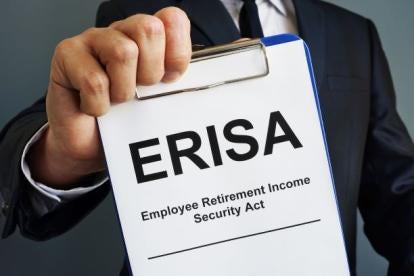Since January 2020, the number of Employee Retirement Income Security Act (ERISA) class actions targeting the alleged mismanagement of 401(k) and 403(b) defined contribution employer-sponsored retirement plans has exploded. During that time, more than 150 of these class actions have been filed nationwide. These suits generally contend that plan sponsors and other plan fiduciaries have breached their fiduciary duties under ERISA by authorizing the plan to pay excessive recordkeeping fees and/or by selecting plan investments that charged excessive investment management fees or that underperformed. The complaints in these “fee litigation” cases seek tens of millions of dollars in damages. In 2021, motions to dismiss were granted in about a dozen cases, but courts have denied such motions in many others.
Supreme Court remands fee case
In December, the U.S. Supreme Court heard oral argument in a Seventh Circuit case involving the proper standards for motions to dismiss such claims. Specifically, the Justices considered whether allegations that a defined contribution retirement plan paid or charged its participants fees that “substantially exceeded” fees for alternative available investment products or services (including recordkeeping) are sufficient to state a claim against plan fiduciaries for breach of the duty of prudence under ERISA. The Seventh Circuit affirmed a district court decision dismissing the claims, which arguably were premised on the same substantive allegations that the Third and Eighth Circuits had deemed sufficient to survive.
The Supreme Court, in a unanimous opinion, vacated the Seventh Circuit decision in this closely watched case. The Court concluded that the Seventh Circuit erred by failing to apply the Court’s guidance in Tibble v. Edison International, a 2015 decision, that plan fiduciaries have a duty to monitor all plan investments and to remove imprudent ones.
The appeal queues up a hotly litigated issue in recent fee litigation: can defined contribution plan participants challenge the prudence and loyalty of retaining a plan investment option they never invested in?
The Supreme Court did not decide whether plaintiffs had plausibly alleged a violation of the duty of prudence. Instead, the Court remanded to the Seventh Circuit to reevaluate plaintiffs’ allegations consistent with Tibble and existing pleading standards. The Court further explained that “the appropriate inquiry” into whether investment options and fees are prudent “will necessarily be context specific.” As such, the Court recognized that “the circumstances facing an ERISA fiduciary will implicate difficult tradeoffs, and courts must give due regard to the range of reasonable judgments a fiduciary may make based on her experience and expertise.”
Class certification issues in fee litigation
In May, the Third Circuit agreed to review a district court’s decision to certify a 60,000+ person class in a fee class action. The appeal queues up a hotly litigated issue in recent fee litigation: can defined contribution plan participants challenge the prudence and loyalty of retaining a plan investment option they never invested in?
The defendants argued that plaintiffs could not have been harmed by excessive fees or underperformance of the funds in which they did not invest; therefore, they lack Article III standing to pursue claims relating to those funds. The defendants relied on a 2020 Supreme Court holding that participants in a defined benefit retirement plan lacked standing to pursue a fiduciary breach claim relating to the management of the plan because they had no “concrete stake” in the lawsuit, as winning or losing the suit would not alter their monthly retirement benefit.
The defendants had raised a similar challenge to oppose class certification, arguing that plaintiffs’ claim failed to meet typicality standards under Rule 23 because the named plaintiffs suffered no injury with respect to the performance or fees of the investment options in which they did not invest. The district court disagreed, finding that plaintiffs’ claims “primarily involve allegedly imprudent decision-making processes as to the Plan as a whole” and challenge “uniform conduct across the Plan.”
The defendants sought immediate review of the class certification decision, which the Third Circuit granted. On appeal, defendants argued that plaintiffs’ claims challenging the 7 funds they selected are not typical of absent class members’ claims challenging the 30 funds plaintiffs did not select. Defendants also argued that plaintiffs lack constitutional standing to challenge the 30 unselected options. The case has been calendared for oral argument in February 2022.






 i
i


